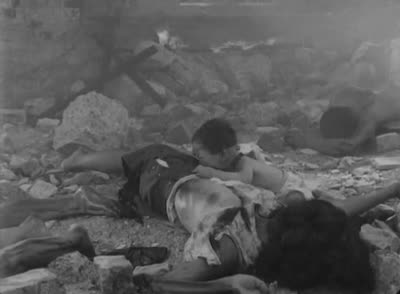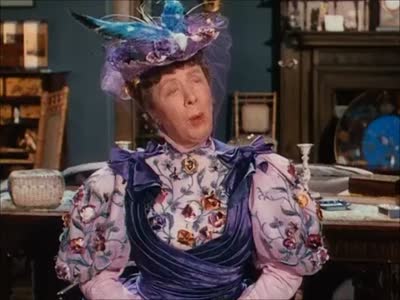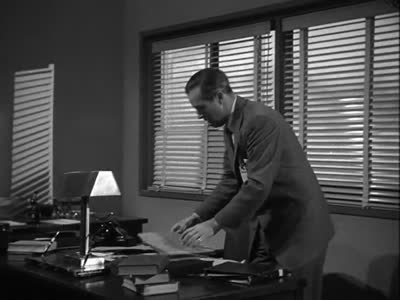Children of Hiroshima / Genbaku no ko (1952, Japan)
A woman returns to the ruins of her childhood home in Hiroshima. Watched it all. One of the odd things about this marathon is to experience the contrast between two familiar but exclusive points of view: The American view of Japan during the Second World War, and Japan’s view of itself immediately afterwards. There is hardly any overlap, and yet they’re both partly valid. To be honest, I love such moments, when I find myself holding multiple incompatible views in my head. I actively seek them out. It’s a rush.
The Greatest Show on Earth (1952, USA)
I wouldn’t say it’s that great. But the circus acts are okay. And Charlton Heston looks like you will have to pry that Indy hat out of his cold, dead fingers. Watched: 8 minutes, then fast forwarded to see an impressive but not entirely plausible (model) train accident.
Clash by Night (1952, USA, Lang)
The Barbara Stanwycks of the world are doomed to choose between stupid, kind men and charming douchebags. No matter what they choose, it turns out wrong. Watched it all. This is the first movie where I’ve actually liked Marilyn Monroe.
Les Miserables (1952, USA)
Since the purpose of movies based on famous novels is to save those who haven’t read them from feeling left out of Culture, and I have already seen a Les Miserables, I don’t think I’ll bother with this one.






